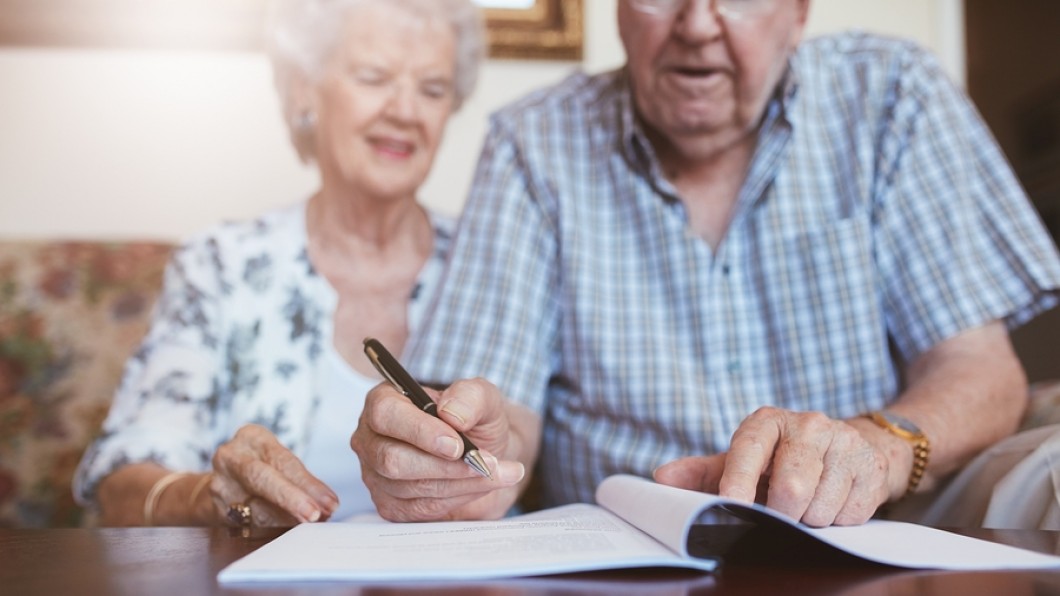Disclaimer: We are not attorneys and this articles is for informational purposes only. In no way should you interpret this article as providing legal advice. A Power of Attorney is potentially a very powerful document. We highly recommend you discuss your particular situation with your attorney or legal representative to determine the best solution. If you need help finding an attorney, please contact us. We can recommend several in the area.
Growing old is inevitable. At some point many people reach an age where they may not be capable of managing their own medical or financial affairs. That’s why it is wise to make certain arrangements, such as a Power of Attorney, in advance.
In this type of scenario, planning ahead gives families piece of mind:
- Older family members will have the satisfaction of knowing that their finances or records are in good hands.
- Those who care most about the elderly person will make the best financial and health decisions for that person.

What is a Power of Attorney (POA)?
A POA is a legal document. It enables people to delegate others to make decisions on their behalf. Examples of some decisions include:
- Paying bills
- Overseeing medical care
- Managing bank accounts
- Selling investments and assets
There are different types of POA. The Durable POA is the one that remains valid after the person is unable to handle their affairs or make decisions on their own.
Therefore, opt for the Durable POA instead of the ordinary or non-durable POA. Ordinary POA's will immediately become invalid if the senior becomes incapacitated. It defeats the whole purpose of getting a POA.
To ensure everything important is covered, your elderly loved one may have to create two separate POA documents
- A Healthcare POA and
- A Financial POA
Doing so simplifies things for the people who are going to use the POAs. You might want one family member to handle financial affairs and another to handle medical issues.
How to Set Up a Power of Attorney
Setting up your elderly loved one’s POA is fairly easy as long as you do adequate planning beforehand. Here’s how you can obtain a POA for your elderly loved one:
Talk to your loved one and figure out whether he/she needs a POA.
It can be hard to talk to your parent about setting up a Power of Attorney. Let them understand how it benefits them in the long run. Tell them a Power of Attorney enables you and the people around your relative to support and help them in the future.
Determine the Power of Attorney agent and talk to that person.
For obvious reasons, the POA agent (the person granted POA power) must be someone the senior trusts. The agent has to be committed to attend to necessary duties for a long period of time. It would also be better if the agent lives close to the senior.
It is also important to appoint an alternate or successor agent. It's always good to have a backup plan.
Talk to the agents and inform them of their responsibilities. Explain what it means to be a POA agent. It is best to discuss these matters with an attorney present. By the end of the discussion, the responsibilities of the agents should be made clear. It has to be evident that they are committed to take on the job.

Make use of downloadable forms to draft a POA document and consult an attorney.
While it’s wise to consult an attorney to help create a Power of Attorney, it wouldn’t hurt to check out POA forms online. Talk to your elderly loved before consulting an attorney. That way they don't feel pressure when the lawyer-meter is running.
There are many downloadable POA forms online. You can see a list of different POA forms on powerofattorney.com. You can also click on the Power of Attorney forms for your particular state. For Arizona residents, these are the list of forms you could review.
For financial POAs, there are a lot of financial institutions – banks, brokerage firms, and the like – that have their own POA forms. However, most states require financial institutions accept any POA form as long as it complies with state laws.
Finalizing Your Decision
Once you’ve discussed everything with your elderly loved one, check in with an attorney to finalize the POA document. You can also ask about a form of authority that best caters to your elderly loved one’s needs. The attorney will help set the boundaries and limits on the POA.
If your family doesn't know an attorney who is well versed with preparing a Power of Attorney, seek a referral from your family or friends. You can also reach out to the local or state bar association. They will definitely have information regarding local lawyers and their specialties.

Put the Power of Attorney in Writing. Store it safely until you Need It.
Regardless of the form used, a POA has to be reduced to a written document that’s
- Properly signed
- Witnessed by other people, and
- Notarized
A POA usually doesn’t have to be filed with the federal or state government unless it involves taxes. However, if the POA is used for real estate transactions, some states require the POA filed at the local county recorder’s office. Make sure to verify state requirements with your attorney, though they will probably tell you themselves.
Along with other important documents, the original POA has to be kept in a safe place. Give copies of it to
- The agent
- Successor agent
- Family members, and
- Appropriate financial and medical institutions, such as the lawyer, doctor, accountant, bank, brokerage firm, and the like.
- We need a Power of Attorney copy at our assisted living homes.
Other states require a copy of the POA be certified by an attorney or notary public before it is recognized. Make sure to clearly state that a copy of the POA can be as valid as the original.
Continuously assess the POA.
As your loved one ages, it is natural that his financial, medical, and personal situations change. You or your loved one have to continuously assess if the POA is still appropriate:
- Whether the terms are still in line with their needs or
- If the agent chosen is still the right person for the job
Your loved one has the right to revoke and alter the POA as well as change the appointed agent as long as he/she is still capable of making sound decisions. You can refer to www.lawdepot.comto find sample documents that revoke a POA. However, if your loved one wishes to change anything, it is always better to prepare an entirely new POA rather than making a lot of changes on the existing one.
It is best to always consult an elder law attorney during the whole process. They will ensure that your loved one’s POA not only meets state requirements, but also protects their interests.
Obtaining a power of attorney for your elderly loved one even before it is needed definitely makes life easier. This will save you, the senior, and your family major headaches if a health emergency happens.
No comments:
Post a Comment